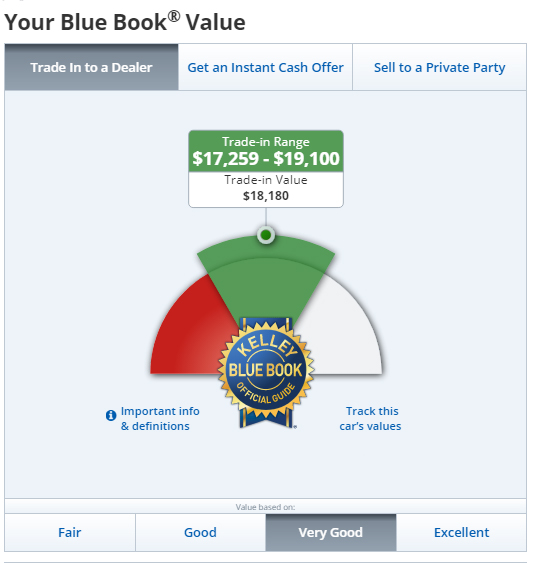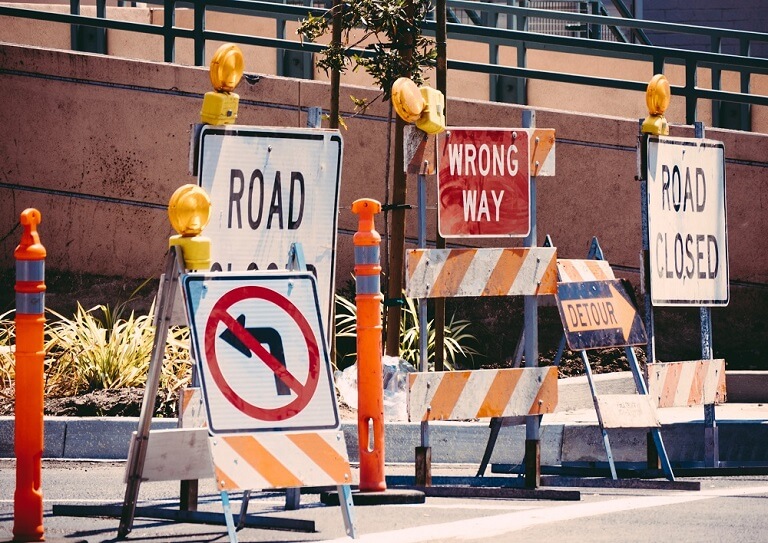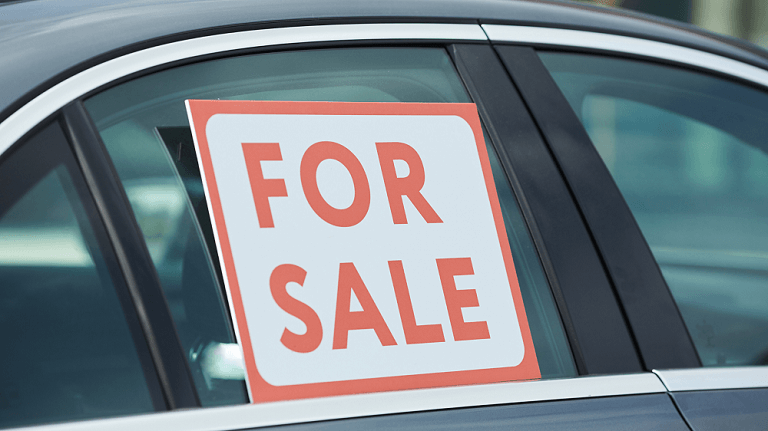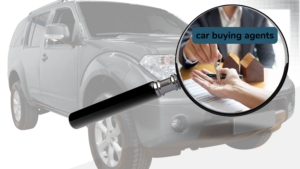Everyone wants to know if it’s better to trade-in a car or if it’s worth it to sell a car by owner.
Sell a Car By Owner or Trade-in Decision Making Process
I’ll take you down a decision-making process to help you determine whether to trade in or whether to try to sell as car private party.
The goal is that you begin thinking more like a car salesman. Because if you’re going to negotiate with one, you need to think like one.
People focus a lot of attention on the value of their trade-in but then tend to overlook other aspects of their car deal or vice versa. Here’s something every car buyer should know. Are you leaning in?
OK… here’s it is:
You should focus on the difference between two numbers.
For you math nerds (like myself) here’s the equation:
sale price – trade in value = the only number that matters
I’ll explain why. But first:
If you don’t want to trade-in, then you need to know that the value of your vehicle is directly tied to your ability to market it. So… when thinking about how to sell a car, consider your marketing skills. A car is worth what someone is willing to pay. I know that seems vague and not something to easily swallow. But it’s true.
Now let’s talk about trade-in’s and plug in some numbers.
1. Go to KBB and enter your vehicle details to see a value report. (Do it now or do it later. But be sure to finish this blog post because what I have to tell you is critical to using the information your learn from KBB.)
Depending upon the selection you make for the condition of your vehicle (Fair, Good, Very Good, Excellent), you’ll see a difference in values.

Typically, your vehicle value to sell it on your own is more, which is displayed on the Sell to a Private Party tab. Once you know the vehicle value range based on condition, you are ready to start marketing your trade-in to the different dealerships that have the prospective vehicle you want. It’s important to note Kelley Blue Book has their clients’ best interest in mind. Who is that? It’s not just you. Hint hint. It’s the auto industry (dealers and manufacturers).
2. Ask yourself “Should I sell it on my own or trade it in?”
Then follow-up with these questions:
Do I want to market my vehicle and be available for people to look at it?
Do I want to go through the hassle?
Finally, what’s the benefit to sell a car on my own?
Ever start a project you couldn’t finish? Or didn’t have the energy to complete? Anyone wondering when their husband is going to finally finish that bathroom tile job he started on a whim? Been there, done that. My point is, it’s important to consider your personality, your skills, available time, and whether it’s realistic for you to sell by owner or if it benefits you to trade in.
Here’s something to think about. If you are buying a new vehicle there are tax benefits to trading it in. If you have a tax rate of 6% and a dealership offers you $10,000 for your trade-in, you would have to sell your vehicle to a private owner for $10,600 to see a return for the hassle. Here is the equation to figure a tax benefit:
trade-in value X tax rate = amount of taxes saved on new car purchase
In this example, if a dealership was offering you $10,000 for trade-in and your tax rate is 6%, you would need to sell your vehicle to a private party for more than $10,600. Can you sell your vehicle for more than the tax savings? And if so, is it worth your time? That’s the question I often encourage people to ask themselves. Are you willing to put in the effort and time it takes to find the right buyer and to get the sale done. Maybe patience is your virtue. If it is… give it a whirl. You can always trade-in later if you’re unsuccessful.
—> Always consult a certified tax accountant or expert to make sure you know how the tax is calculated where you live. <—
3. Be realistic when you plan to sell a car and/or trade-in.
I’ve already stated that the value of your trade-in is what someone will pay you for it. I always thought it was funny when customers would say, “I think my vehicle is worth at least $4,000. This is how much they go for on the internet. So that’s what I expect to get for it.” The reason it’s funny to a car salesman or dealer is this.
If you take a vehicle valued at $4000 that you see all over the internet, chances are a dealership might only get $3000-$3500 for it. They cannot possibly give you $4000 if they will be lucky to get $4000 reselling it. What they CAN do is give you $4000 for your trade-in and then not discount the new vehicle as much as they would have if they told you the actual value of your vehicle. Be very cautious when a dealership agrees to a trade-in value way more than what everyone tells you. You can be sure they are making it up somewhere in the deal.
So we’ve defined a range for your vehicle’s value. We’ve discussed the advantages to trade-ins and the realities of selling a car by owner, and answered the age old question: What is my trade-in worth?
Your trade in is worth what someone is willing to pay you for it.
If you plan on trading in your vehicle, the only number you should worry about is found by solving this equation: sale price – dealership trade-in value = number you should negotiate (aka: the only number that matters)

Now here’s some tough love. STOP worrying about your trade -n value so much. You’re headed down the wrong road. It’s doing you no good. Here’s why. If you have your vehicle appraised at multiple dealerships you will find that the amount will be drastically different from one to another.
This is why it’s not worth putting so much emphasis on the trade-in value.
Do this instead: Search for the new car you want, locate it, contact dealerships that have that car and use the equation I gave you:
new car sale price – dealership trade in value = number you should negotiate
If you do your negotiating using this equation, you are on the right track to making a knowledgeable car deal. Now you’re starting to think like a car salesman.
If you would like us to help market your vehicle whether trading in or selling it private owner, reach out. We can help. Schedule a Free No Pressure Consultation. Or drop us a question in the comments!
We do not receive commissions from any dealerships and we only have your best interest in mind.







